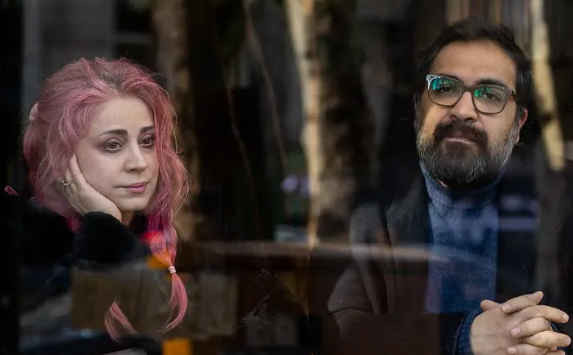“Despite the repression of dissenting voices in Iran, its filmmakers continue to produce cinema that holds its own on the world’s screens,” said Linda Dubler, curator of media arts at the High. “The 13th annual Iranian Film Today presents diverse views of Iranian society, from the edgiest documentary to the most elegant art film. Ranging from the exploration of the role of women in an Islamic theocracy to the marginalization of gays and lesbians and the fate of refugees, this year’s festival is full of revelations and new discoveries.”
Iranian Film Today began Friday, January 7, with “Payback” from feminist director Tamineh Milani. Inspired by a 2001 stint in prison, the film is a pointed dramatic comedy about a paroled female ex-con who convinces three other women—all of whom have spent time behind bars—to join her in a get-rich-quick scheme: they will pose as prostitutes and fleece gullible married men who are looking for a little outside action.
As Barbara Scharres wrote in the Gene Siskell Film Center’s calendar, “While director Milani doesn’t shun the darker implications of the plot, she infuses the caper with some nasty fun and a dominatrix vibe when these four young women deftly turn the tables on their would-be male predators.”
In his feature debut, director Shalizeh Arefpour presents a revealing look at the complex and troubled relationship between Iranian society and Afghan immigrants and refugees as well as a poignant love story in “Heiran,” on Saturday, January 8. The story unfolds as Mahi, an Iranian high school student, falls in love with Heiran, an illegal Afghan immigrant, and the two go to Tehran to be married, despite the vehement opposition of their families. There Mahi’s innocence and Heiran’s vulnerability combine to make their life far less idyllic than they imagined.
“Women Without Men” marks the end of the film series on Saturday, January 22. It is the first film from Shirin Neshat, an acclaimed visual artist known for her still photography and video installations that deal with gender issues in Islamic society. Set in 1953, just after the CIA-backed coup re-installed the Shah, the film traces the intersecting lives of Zarin, a prostitute who has fled the brothel in which she works; Munis, who is essentially held prisoner in her own home by her deeply religious brother; Munis’s friend Faezeh, who shares the brother’s faith and dreams of marrying him; and Fakhri, a wealthy woman stuck in a very unhappy marriage to a bullying military man.
All the films are screened at 8 p.m. (unless otherwise noted) in the Richard H. Rich Theatre, located in the Memorial Arts Building, adjacent to the High at Peachtree and 15th Streets in midtown Atlanta. All films are in Persian with subtitles. “Payback” Friday, January 7; “Heiran” Saturday, January 8; “Sex My Life” Friday, January 14; “Be Calm and Count to Seven” Saturday, January 15; Tehroun” Friday, January 21; “Women Without Men” Saturday, January 22?
Tickets can be purchased in advance by visiting the Woodruff Arts Center Box Office, calling 404-733-5000 or going online to www.High.org. Admission prices are $7 for the public and $6 for Museum members, students and seniors. Patron-level members enter free. Tickets may also be purchased at the door on the night of the screening.























